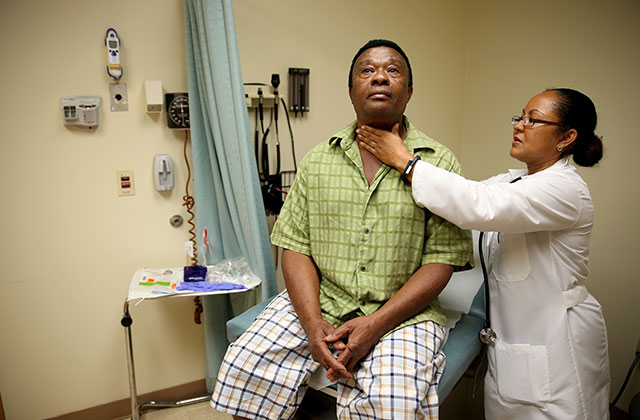Physician Zia Okocha uses Black History Month as a framework to school her colleagues on the history of medical mistreatment committed against Black Americans—in the hopes that it will make them more informed, and better, doctors.
In an opinion piece titled “Racism In Medicine: As Doctors, We Must Do Better” that was published yesterday (February 26) on Rewire.News, Okocha, a family medicine physician and a fellow with Physicians for Reproductive Health, writes:
rnt
As it is Black History Month, I implore my colleagues to not only take time to recognize the contributions of Black people in the United States, but also to acknowledge the many ways Black bodies have involuntarily contributed to medical advances we take for granted. Only then can we begin to change the health care system and our role in perpetuating biases within it.
She discusses one of the most well-known cases of medical racism, emphasizing that it was not an exception, but an all-too-frequent norm:
rnt
Many people are familiar with the “Tuskegee Study,” in which hundreds of Black men from 1932 until 1972 were told they were receiving treatment for syphilis, a sexually transmitted infection that can lead to devastating outcomes such as hearing loss, vision loss and nerve damage if left untreated. These men received no treatment and were monitored because the government desired to know the natural progression of syphilis. Though this is an infamous example of both contributions made by and predation on Black people, it is by no means the only one.
Okocha goes on to give other examples. These include how Thomas Jefferson injected enslaved men and women with cowpox to see if it would lead to an immunity to smallpox; a physician in the mid-1800s who performed experimental vaginal surgeries on Black enslaved women without pain medication; and the use of the corpses of recently deceased Black people in medical schools so students could study anatomy on actual bodies instead of textbooks.
More recently, Okocha writes of how the federal government heavily promotes long-acting reversible contraception to Black and Brown women, despite “shoddy evidence regarding side effects or potential complications.”
She ends the piece with a challenge to other medical professionals:
rnt
This February, as we mark contributions made by Black people to this country, health providers must also examine the medical community’s history of oppression, their individual biases and prejudices, and the structurally racist and sexist policies that exacerbate inequity in our society. As they do that, they should incorporate practices that would improve and help end racial disparities in medical care. One first step, which is by no means easy, is taking note of their own implicit biases against people of color—numerous studies demonstrate presence of this bias. Advocacy for policy or market solutions that attack structural inequalities—such as environmental and reproductive injustice, housing insecurity and redlining, increasing income inequality, lack of paid family leave, and so on—will have a larger impact than any individual patient encounter will have. Many organizations already address some of these issues, and the addition of health care provider voices will bolster their positions.
Read the entire article here.
